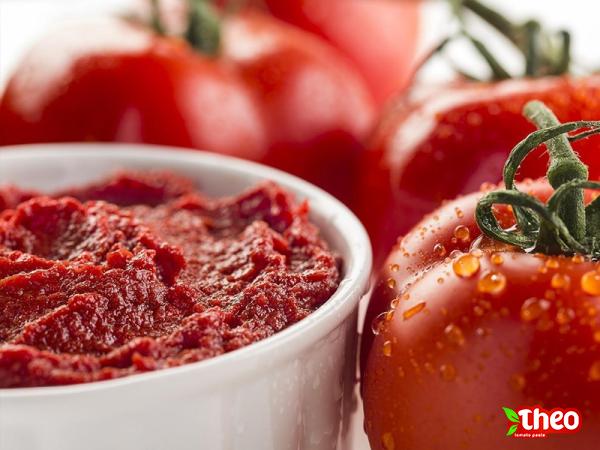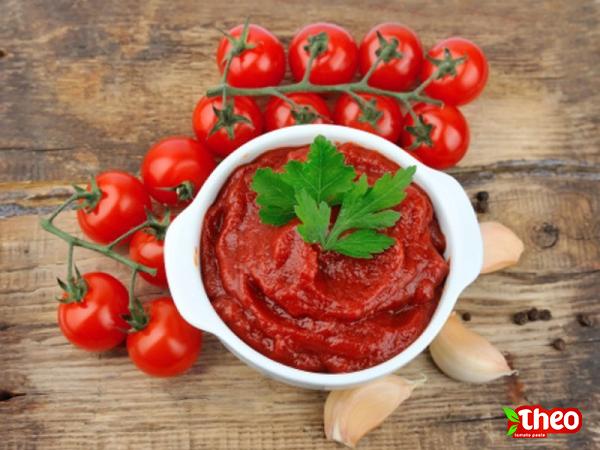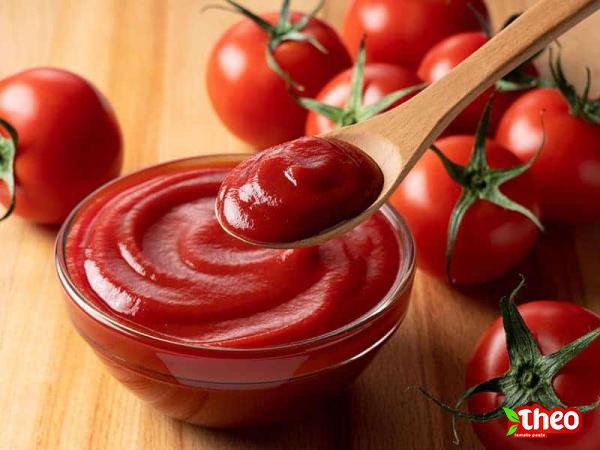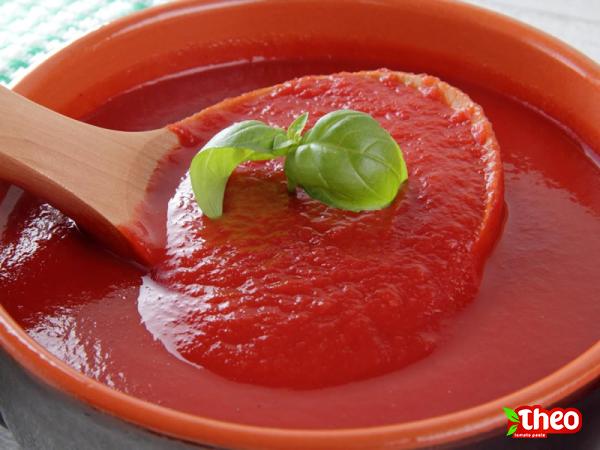Exploring the Factors Affecting the Price and Purchase Decision of Tomato Paste in Bulk Introduction: This article aims to delve into the factors that influence the price of tomato paste and the considerations buyers should make when purchasing it in bulk at a discounted price. Tomato paste is a widely used ingredient in various cuisines globally, and its affordability and quality are crucial factors for both individual consumers and businesses. By understanding the dynamics of pricing and negotiating bulk purchases, buyers can make informed decisions to ensure they obtain a cost-effective and high-quality product. 1. Factors Influencing Tomato Paste Price: a. Raw Material Cost: The price of tomato paste is prominently influenced by the cost of raw materials like tomatoes, transportation, and processing. Fluctuations in these costs due to weather conditions, availability, and market demands can impact the final price of the product. b. Packaging: Packaging costs, including cans, labels, and transportation, affect the overall price of tomato paste. Large cans for bulk purchases may offer economies of scale, reducing packaging costs per unit. c. Brand Reputation: Established brands often have higher prices due to their reputation for quality, taste, and reliability. Buyers might consider opting for less-known but reputable brands to save costs without sacrificing quality. d. Market Competition: Intense competition among manufacturers and suppliers can lead to price variations. Buyers can benefit from price discounts and lower-priced alternatives by exploring different brands and suppliers.
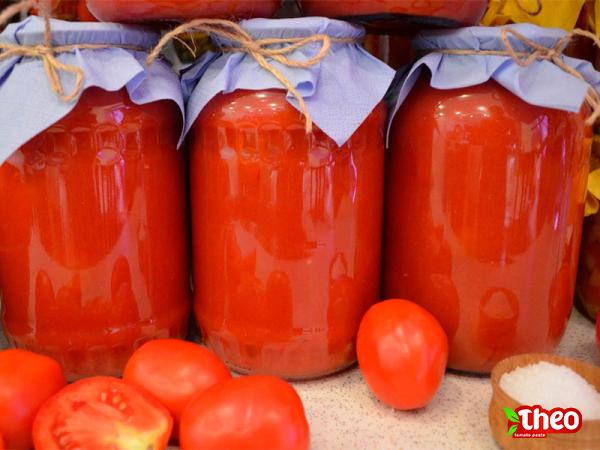
tomato paste
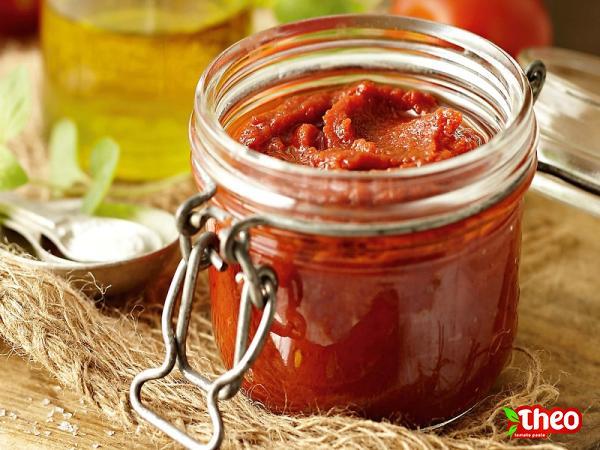 2. Benefits of Buying Tomato Paste in Bulk: a. Cost Efficiency: Purchasing tomato paste in bulk quantities typically affords buyers a lower unit price compared to purchasing smaller quantities. Bulk buying can also reduce the frequency of ordering, saving on transportation costs. b. Convenience: By having a larger stock of tomato paste, buyers can streamline their procurement process, ensuring they have a readily available supply for their business or personal needs. Reduced ordering frequency can save administrative time and effort. c. Sustainability: Buying tomato paste in large cans reduces the total packaging waste generated per unit of product compared to individual-sized cans. This contributes to a more sustainable approach to consumption and waste management. d. Stock Management: Bulk buying allows for better stock management, enabling businesses to meet sudden surges in demand or seasonal variations without running out of supply. This helps maintain customer satisfaction and avoids any potential loss of business. 3. Considerations for Buying Tomato Paste in Bulk: a. Quality: Ensuring the quality of tomato paste is of utmost importance. Buyers should verify that the product meets their preferred taste, texture, and nutritional requirements. Reviews, certifications (such as ISO, HACCP) and lab tests can aid in determining a product’s quality. b. Expiration Dates: Buyers should carefully check the expiration dates of tomato paste products when purchasing in bulk. Considering shelf life requirements and usage frequency can help prevent any wastage due to expired products. c. Storage Conditions: Adequate storage conditions, including temperature and humidity, are vital to maintaining the quality and longevity of tomato paste. Prior to bulk purchases, buyers should ensure they have suitable facilities to store the product properly. d. Supplier Reputation: Choosing a reputable supplier is crucial in obtaining a good deal on bulk purchases. Buyers should explore suppliers’ reliability, their track record, and their ability to meet demand consistently. Requesting samples and reviewing customer feedback can assist in selecting a reliable supplier. Conclusion: The price and purchase decision of tomato paste in bulk require a balance between cost-effectiveness and quality. Various factors, including raw material costs, packaging, brand reputation, and market competition, influence the pricing dynamics of tomato paste. Buying tomato paste in bulk offers advantages such as cost efficiency, convenience, sustainability, and effective stock management. Buyers should ensure they consider factors such as quality, expiration dates, storage conditions, and supplier reputation when making bulk purchases. By keeping these factors in mind, buyers can make informed decisions to obtain cost-effective and high-quality tomato paste, ultimately benefiting both individuals and businesses alike.I. Factors Influencing Tomato Paste Price:
2. Benefits of Buying Tomato Paste in Bulk: a. Cost Efficiency: Purchasing tomato paste in bulk quantities typically affords buyers a lower unit price compared to purchasing smaller quantities. Bulk buying can also reduce the frequency of ordering, saving on transportation costs. b. Convenience: By having a larger stock of tomato paste, buyers can streamline their procurement process, ensuring they have a readily available supply for their business or personal needs. Reduced ordering frequency can save administrative time and effort. c. Sustainability: Buying tomato paste in large cans reduces the total packaging waste generated per unit of product compared to individual-sized cans. This contributes to a more sustainable approach to consumption and waste management. d. Stock Management: Bulk buying allows for better stock management, enabling businesses to meet sudden surges in demand or seasonal variations without running out of supply. This helps maintain customer satisfaction and avoids any potential loss of business. 3. Considerations for Buying Tomato Paste in Bulk: a. Quality: Ensuring the quality of tomato paste is of utmost importance. Buyers should verify that the product meets their preferred taste, texture, and nutritional requirements. Reviews, certifications (such as ISO, HACCP) and lab tests can aid in determining a product’s quality. b. Expiration Dates: Buyers should carefully check the expiration dates of tomato paste products when purchasing in bulk. Considering shelf life requirements and usage frequency can help prevent any wastage due to expired products. c. Storage Conditions: Adequate storage conditions, including temperature and humidity, are vital to maintaining the quality and longevity of tomato paste. Prior to bulk purchases, buyers should ensure they have suitable facilities to store the product properly. d. Supplier Reputation: Choosing a reputable supplier is crucial in obtaining a good deal on bulk purchases. Buyers should explore suppliers’ reliability, their track record, and their ability to meet demand consistently. Requesting samples and reviewing customer feedback can assist in selecting a reliable supplier. Conclusion: The price and purchase decision of tomato paste in bulk require a balance between cost-effectiveness and quality. Various factors, including raw material costs, packaging, brand reputation, and market competition, influence the pricing dynamics of tomato paste. Buying tomato paste in bulk offers advantages such as cost efficiency, convenience, sustainability, and effective stock management. Buyers should ensure they consider factors such as quality, expiration dates, storage conditions, and supplier reputation when making bulk purchases. By keeping these factors in mind, buyers can make informed decisions to obtain cost-effective and high-quality tomato paste, ultimately benefiting both individuals and businesses alike.I. Factors Influencing Tomato Paste Price:
Specifications of tomato paste
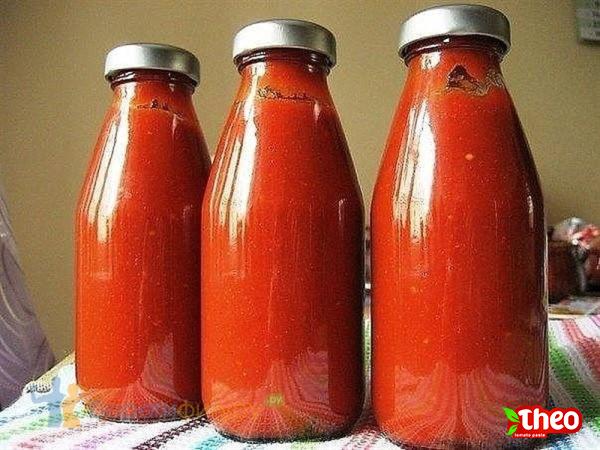 1. Raw Material Cost: The cost of raw materials, primarily tomatoes, is a significant factor in determining the price of tomato paste. Factors such as weather conditions, availability, and market demands can lead to fluctuations in tomato prices. For instance, adverse weather conditions or a low supply of tomatoes can drive up the overall production cost, resulting in higher prices for the end product. 2. Packaging: Packaging costs play a crucial role in determining the price of tomato paste. Large cans, which are commonly used for bulk purchases, often offer economies of scale, reducing the packaging cost per unit. Additionally, the type of packaging material, labels, and transportation costs also impact the final price of the product. 3. Brand Reputation: Established brands with a strong reputation for quality, taste, and reliability often charge a premium for their tomato paste products. Buyers might consider opting for less-known but reputable brands to obtain a cost-effective yet high-quality product. Conducting thorough research on customer reviews and ratings can help identify reliable brands that offer good value for money. 4. Market Competition: The level of competition in the tomato paste market can influence pricing dynamics. Intense competition among manufacturers and suppliers can lead to price variations, as companies may offer discounts or lower-priced alternatives to attract customers. Buyers should explore different brands and suppliers to identify potential cost savings without compromising on product quality. II. Benefits of Buying Tomato Paste in Bulk: 1. Cost Efficiency: One of the primary advantages of buying tomato paste in bulk is the cost savings it offers. Purchasing larger quantities typically results in a lower unit price compared to buying smaller quantities. For businesses, buying in bulk allows for better financial planning and reduces the frequency of ordering, which can help save on transportation costs. 2. Convenience: Bulk buying of tomato paste provides a convenient solution for individuals and businesses. By having a sufficient stock of tomato paste, buyers can streamline their procurement process and ensure a readily available supply. This helps save time and effort spent on repeated ordering processes, allowing buyers to focus on other essential aspects of their operations. 3. Sustainability: Bulk buying of tomato paste can contribute to a more sustainable approach to consumption. By reducing the total packaging waste generated per unit of product, buyers can minimize their environmental footprint. Choosing large cans for bulk purchases helps minimize the use of individual-sized cans, which can be more detrimental to the environment due to increased waste.
1. Raw Material Cost: The cost of raw materials, primarily tomatoes, is a significant factor in determining the price of tomato paste. Factors such as weather conditions, availability, and market demands can lead to fluctuations in tomato prices. For instance, adverse weather conditions or a low supply of tomatoes can drive up the overall production cost, resulting in higher prices for the end product. 2. Packaging: Packaging costs play a crucial role in determining the price of tomato paste. Large cans, which are commonly used for bulk purchases, often offer economies of scale, reducing the packaging cost per unit. Additionally, the type of packaging material, labels, and transportation costs also impact the final price of the product. 3. Brand Reputation: Established brands with a strong reputation for quality, taste, and reliability often charge a premium for their tomato paste products. Buyers might consider opting for less-known but reputable brands to obtain a cost-effective yet high-quality product. Conducting thorough research on customer reviews and ratings can help identify reliable brands that offer good value for money. 4. Market Competition: The level of competition in the tomato paste market can influence pricing dynamics. Intense competition among manufacturers and suppliers can lead to price variations, as companies may offer discounts or lower-priced alternatives to attract customers. Buyers should explore different brands and suppliers to identify potential cost savings without compromising on product quality. II. Benefits of Buying Tomato Paste in Bulk: 1. Cost Efficiency: One of the primary advantages of buying tomato paste in bulk is the cost savings it offers. Purchasing larger quantities typically results in a lower unit price compared to buying smaller quantities. For businesses, buying in bulk allows for better financial planning and reduces the frequency of ordering, which can help save on transportation costs. 2. Convenience: Bulk buying of tomato paste provides a convenient solution for individuals and businesses. By having a sufficient stock of tomato paste, buyers can streamline their procurement process and ensure a readily available supply. This helps save time and effort spent on repeated ordering processes, allowing buyers to focus on other essential aspects of their operations. 3. Sustainability: Bulk buying of tomato paste can contribute to a more sustainable approach to consumption. By reducing the total packaging waste generated per unit of product, buyers can minimize their environmental footprint. Choosing large cans for bulk purchases helps minimize the use of individual-sized cans, which can be more detrimental to the environment due to increased waste.
buy tomato paste
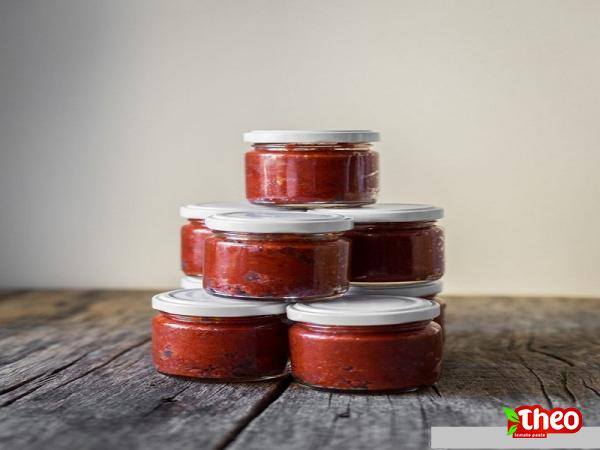 4. Stock Management: When buying tomato paste in bulk, businesses can benefit from better stock management. Having a sufficient stock ensures a consistent supply, even during sudden surges in demand or seasonal variations. By avoiding stockouts, businesses can maintain customer satisfaction and prevent any potential loss of business due to product unavailability. III. Considerations for Buying Tomato Paste in Bulk: 1. Quality: When purchasing tomato paste in bulk, ensuring product quality is essential. Buyers should verify that the tomato paste meets their preferred taste, texture, and nutritional requirements. Reading customer reviews and ratings can provide valuable insights into the quality of the product. Additionally, certifications such as ISO and HACCP can help further validate the quality and safety of the tomato paste. 2. Expiration Dates: Checking the expiration dates of tomato paste products is crucial when making bulk purchases. Buyers should consider their usage frequency and the shelf life requirements of the product to avoid wastage due to expired products. It is advisable to opt for tomato paste with a longer shelf life to ensure proper utilization before expiration. 3. Storage Conditions: Proper storage conditions are vital for maintaining the quality and longevity of tomato paste. Buyers should ensure they have suitable storage facilities that meet the temperature and humidity requirements for storing bulk quantities of tomato paste. Improper storage conditions can lead to spoilage and degradation of the product, resulting in financial losses for the buyer. 4. Supplier Reputation: Choosing a reputable supplier is crucial when buying tomato paste in bulk. Buyers should thoroughly research potential suppliers, considering factors such as reliability, track record, and the ability to meet demand consistently. Requesting samples from prospective suppliers and reviewing customer feedback can provide insights into their product quality, delivery efficiency, and customer service. Conclusion: The price and purchase decision of tomato paste in bulk require careful consideration of various factors. Buyers should understand the factors influencing tomato paste prices, such as raw material costs, packaging, brand reputation, and market competition. Purchasing tomato paste in bulk offers benefits like cost efficiency, convenience, sustainability, and effective stock management. However, buyers should also consider factors such as product quality, expiration dates, storage conditions, and supplier reputation to ensure a cost-effective and high-quality purchase. By taking these factors into account, buyers can make informed decisions and optimize their procurement of tomato paste in bulk.
4. Stock Management: When buying tomato paste in bulk, businesses can benefit from better stock management. Having a sufficient stock ensures a consistent supply, even during sudden surges in demand or seasonal variations. By avoiding stockouts, businesses can maintain customer satisfaction and prevent any potential loss of business due to product unavailability. III. Considerations for Buying Tomato Paste in Bulk: 1. Quality: When purchasing tomato paste in bulk, ensuring product quality is essential. Buyers should verify that the tomato paste meets their preferred taste, texture, and nutritional requirements. Reading customer reviews and ratings can provide valuable insights into the quality of the product. Additionally, certifications such as ISO and HACCP can help further validate the quality and safety of the tomato paste. 2. Expiration Dates: Checking the expiration dates of tomato paste products is crucial when making bulk purchases. Buyers should consider their usage frequency and the shelf life requirements of the product to avoid wastage due to expired products. It is advisable to opt for tomato paste with a longer shelf life to ensure proper utilization before expiration. 3. Storage Conditions: Proper storage conditions are vital for maintaining the quality and longevity of tomato paste. Buyers should ensure they have suitable storage facilities that meet the temperature and humidity requirements for storing bulk quantities of tomato paste. Improper storage conditions can lead to spoilage and degradation of the product, resulting in financial losses for the buyer. 4. Supplier Reputation: Choosing a reputable supplier is crucial when buying tomato paste in bulk. Buyers should thoroughly research potential suppliers, considering factors such as reliability, track record, and the ability to meet demand consistently. Requesting samples from prospective suppliers and reviewing customer feedback can provide insights into their product quality, delivery efficiency, and customer service. Conclusion: The price and purchase decision of tomato paste in bulk require careful consideration of various factors. Buyers should understand the factors influencing tomato paste prices, such as raw material costs, packaging, brand reputation, and market competition. Purchasing tomato paste in bulk offers benefits like cost efficiency, convenience, sustainability, and effective stock management. However, buyers should also consider factors such as product quality, expiration dates, storage conditions, and supplier reputation to ensure a cost-effective and high-quality purchase. By taking these factors into account, buyers can make informed decisions and optimize their procurement of tomato paste in bulk.

